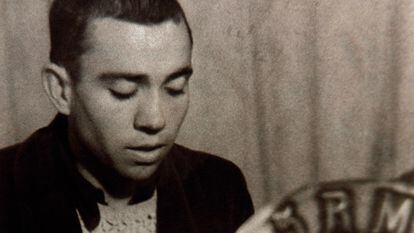
The National Court has rejected the right to digital oblivion claimed by the son of Antonio Luis Baena Tocón, judicial secretary of the Special Press Court that instructed the procedure against the poet Miguel Hernández, who was finally sentenced to death by a Francoist court martial in 1940 The descendant claimed with his appeal that “his father’s name not be associated” with a series of information contained in 18 pieces of the internet, invoking the right to digital suppression and the Data Protection and Guarantee of Digital Rights law . In its sentence, the court states: “The information that concerns us is of unquestionable public interest as it deals with the intervention of the appellant’s father, as judicial secretary of the Special Press Court that instructed the poet’s procedure.” The death penalty for the perpetrator village wind It was eventually commuted to 30 years in prison, although Miguel Hernández died two years later, in 1942, of tuberculosis in Alicante.
The name of Baena Tocón came to light, outside the research field, when the University of Alicante decided in 2019 to deindex its internet search engines, at the request of the son, some articles written by Juan Antonio Ríos Carratalá, professor of Spanish Literature at that center. The decision generated intense controversy for being interpreted as a limitation or censorship in the exercise of historical and academic research. The rector of the university rectified the resolution of the management and republished the texts with the full names. The son filed a contentious-administrative appeal before a court in Alicante, which endorsed the decision of the rector.
Now, the First Section of the Contentious-Administrative Chamber of the National High Court dismisses the appeal of the son of the judicial secretary against the resolution of the Spanish Agency for Data Protection, which appears as the defendant, and against Google (co-defendant). The court emphasizes that “URLs [enlaces] the blocking of which is intended to refer to information of public interest and of historical relevance, whose access and disclosure are fully protected by the right to scientific freedom and freedom of expression and information”, due to the connection of Baena Tocón “with the court that instructed the cause that sentenced the poet to death”.
“On the other hand, said information refers to professional life and not to his personal life” [de Baena Tocón]”a very relevant circumstance to modulate the intensity that the protection of the right regulated in article 18.4 of the Constitution should deserve”, maintains the sentence, which is subject to an appeal before the Supreme Court.
The ruling also considers that the absence of Baena Tocón’s signature in the minutes of the War Council is “an irrelevant piece of information, because the essential thing” is that his name and signature “appear repeatedly throughout the file of the procedure as secretary.” “Therefore, even if there were some imprecision about the exact body” of which he was secretary, “it would be a minor imprecision, because this does not substantially change the nature of his role in the process, since in none of the publications is he attributed a different role. of the secretary of the judicial body”.
Regarding the inaccuracies published and referred to by the plaintiff to support his claims, the National High Court maintains that the fact that the “alférez [Baena Tocón] of honorary complement of the military legal body did not have any opposition approved at that time and was not a public official, it lacks the importance that the party intends to grant it, since what is relevant is that, being a Law graduate, he served as court clerk of the Court Press Special that instructed the summary”, and for that reason “and for the purposes now examined of weighing the relevance of the exercise of the right to information and expression, it can be understood that he exercised public functions and in a matter of undoubted public relevance”.
All the culture that goes with you awaits you here.
subscribe
Babelia
The literary news analyzed by our best critics in our weekly newsletter
RECEIVE IT
